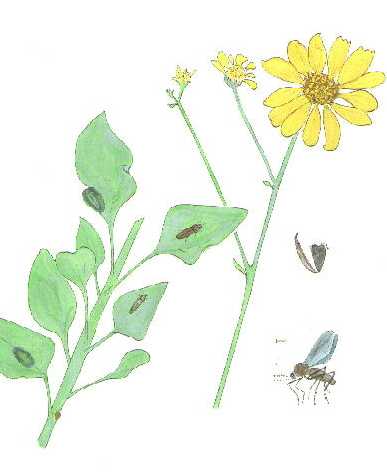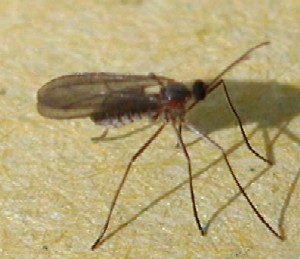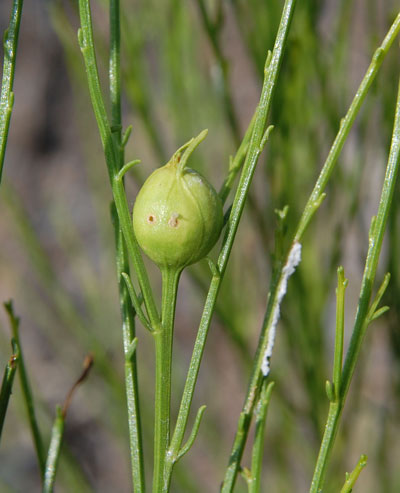Brittle Bush Gall Midge
Asphondylia enceliae (?)

This watercolor was done from a live specimen found in the McDowell Mts., Maricopa Co., Feb. 9, 1992. Dark fuzzy swellings on the leaves are the galls. Also shown in this illustration are Trirhabda geminata, Encelia Leaf Beetle
Cecidomyiidae -- Gall Midge Family
As adults, gall midges are frail-looking gnats with long delicate legs.
The specimen shown enlarged here was reared from galls in flower buds of Veronica
sp. found near Lake
Pleasant.

Several insects are specialized to eat Brittlebush (Encelia farinosa) leaves. A tiny gall midge (very small fly, family Cecidomyidae, genus Asphondylia) causes fuzzy enlargements on young leaves or stems where the maggot develops inside. The actual size of the adult fly pictured at lower right is about 3 mm.
Many other kinds of gall midges can be found hosted by shrubs and other Sonoran Desert plants. Creosote Bush for example host many species, including Asphondylia auripila. spherical clusters of numerous stunted leaves are distinctive. Another Asphondylia floccosa results in fluffy, cotton-ball galls on shrubs of Allscale Saltbush. Yet another can be found on Odora, Odora Gall Midge. Each type of gall and on each type of plant represent unique species of gall midge, yet as adults flies they resembe one another very closely (photo lower left) requiring a microscope for separation.
This abundance of plant-feeding insects in turn provides food for birds, reptiles and spiders.

Each of these galls on Desert Broom (Baccharis sarathroides) supports a dozen or more cecidomyiid fly larvae.